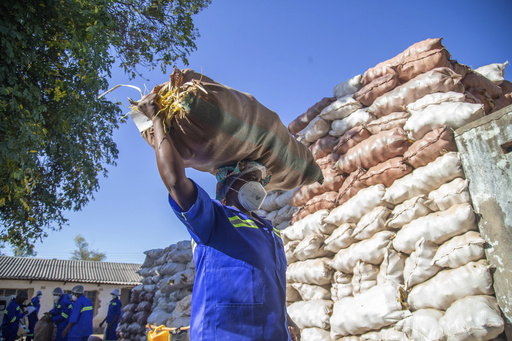Loveness Bhitoni, a 50-year-old woman from Zimbabwe, has been collecting fruit from baobab trees near her home since she was a child to add variety to her family’s diet. As climate change-induced droughts devastate her crops, Bhitoni has turned to harvesting baobab fruit, which has gained popularity as a natural health food globally.
Bhitoni now wakes early each day to forage for baobab fruit, a task that involves walking barefoot through harsh terrain and risking encounters with wildlife. The baobab trade, which began in her area in 2018, has become a vital source of income for locals in Kotwa, Zimbabwe, especially after the recent severe drought worsened by the El Niño weather phenomenon.
The global market for baobab products has surged, turning rural African regions with abundant baobab trees into key markets. The trees, known for their resilience in harsh conditions, can take over 20 years to produce fruit and are not cultivated but foraged.
Despite the increasing demand for baobab products, harvesters like Bhitoni continue to face challenges with low prices and tough working conditions. The African Baobab Alliance aims to train locals on food safety and promote sustainable harvesting practices, emphasizing collecting fruit from the ground to reduce risks associated with climbing the trees.
The baobab, also known as the “tree of life,” is native to Africa and has numerous health benefits. The market for baobab powder, especially in China, the U.S., and Europe, is expanding rapidly, with projections indicating substantial growth in the coming years.
Processing plants in Zimbabwe are key players in the baobab industry, where the fruit is processed and sold internationally. However, despite the growth in demand and market value, harvesters like Bhitoni struggle to make ends meet due to low earnings and tough working conditions.
Efforts are being made by organizations like Zimtrade and development economists to improve the situation for baobab pickers, particularly rural women, by exploring opportunities for fairer wages and establishing processing plants in rural areas.
As Bhitoni continues her laborious work of harvesting baobab fruit, she remains hopeful for better prices in the future. Despite the challenges she faces, she remains committed to her work, ensuring that even wild animals benefit from the baobab trees she tends to.
